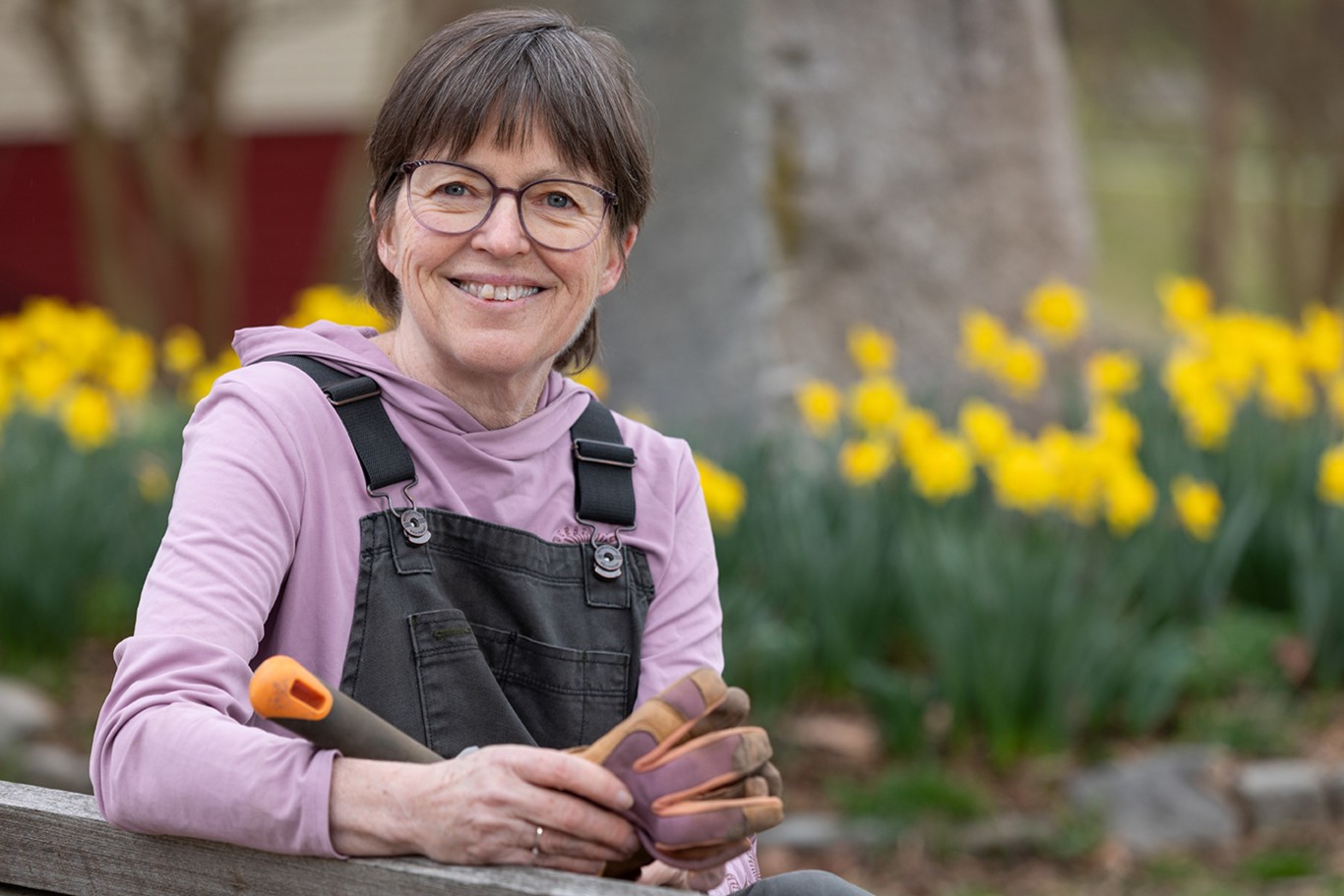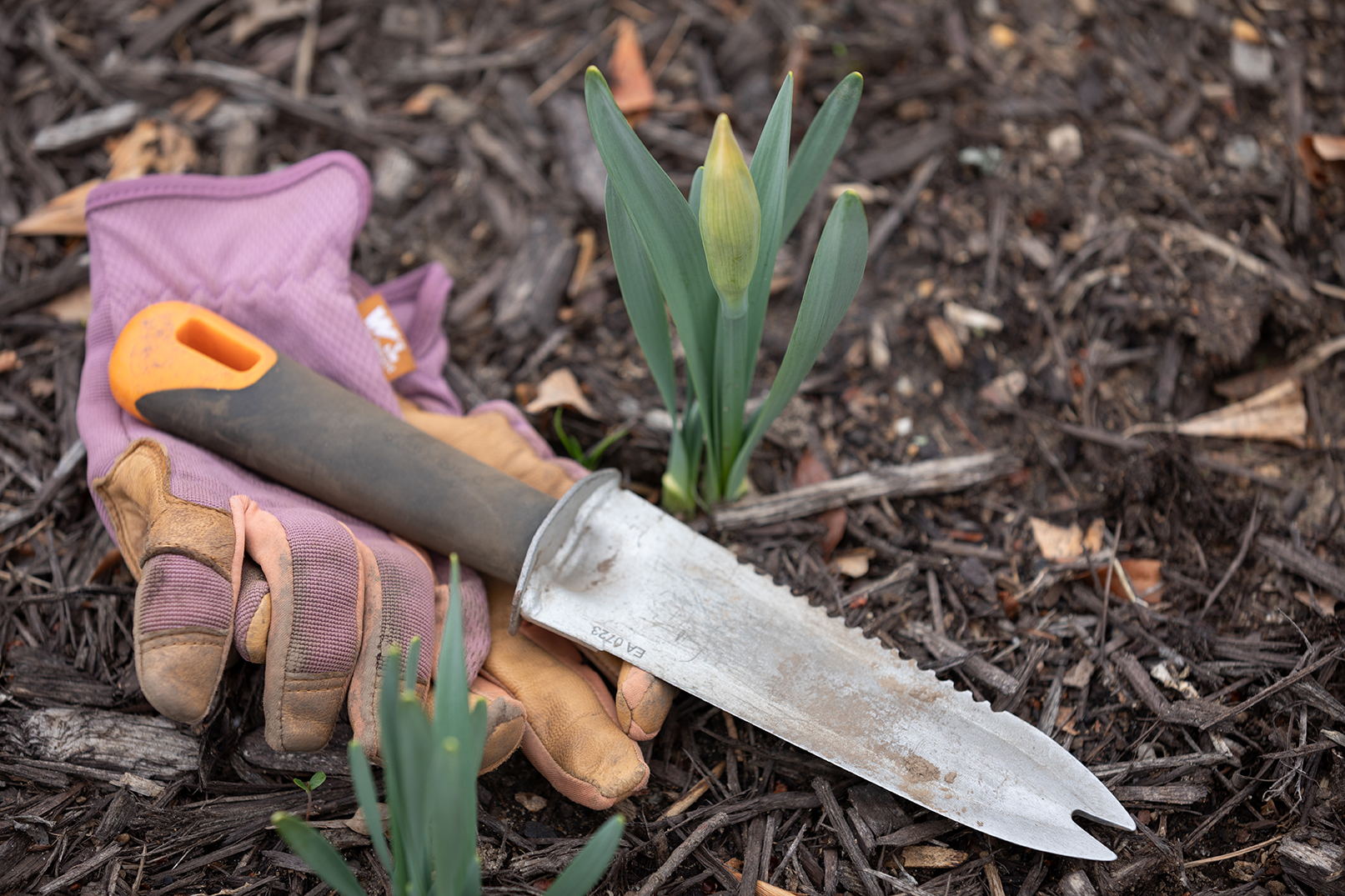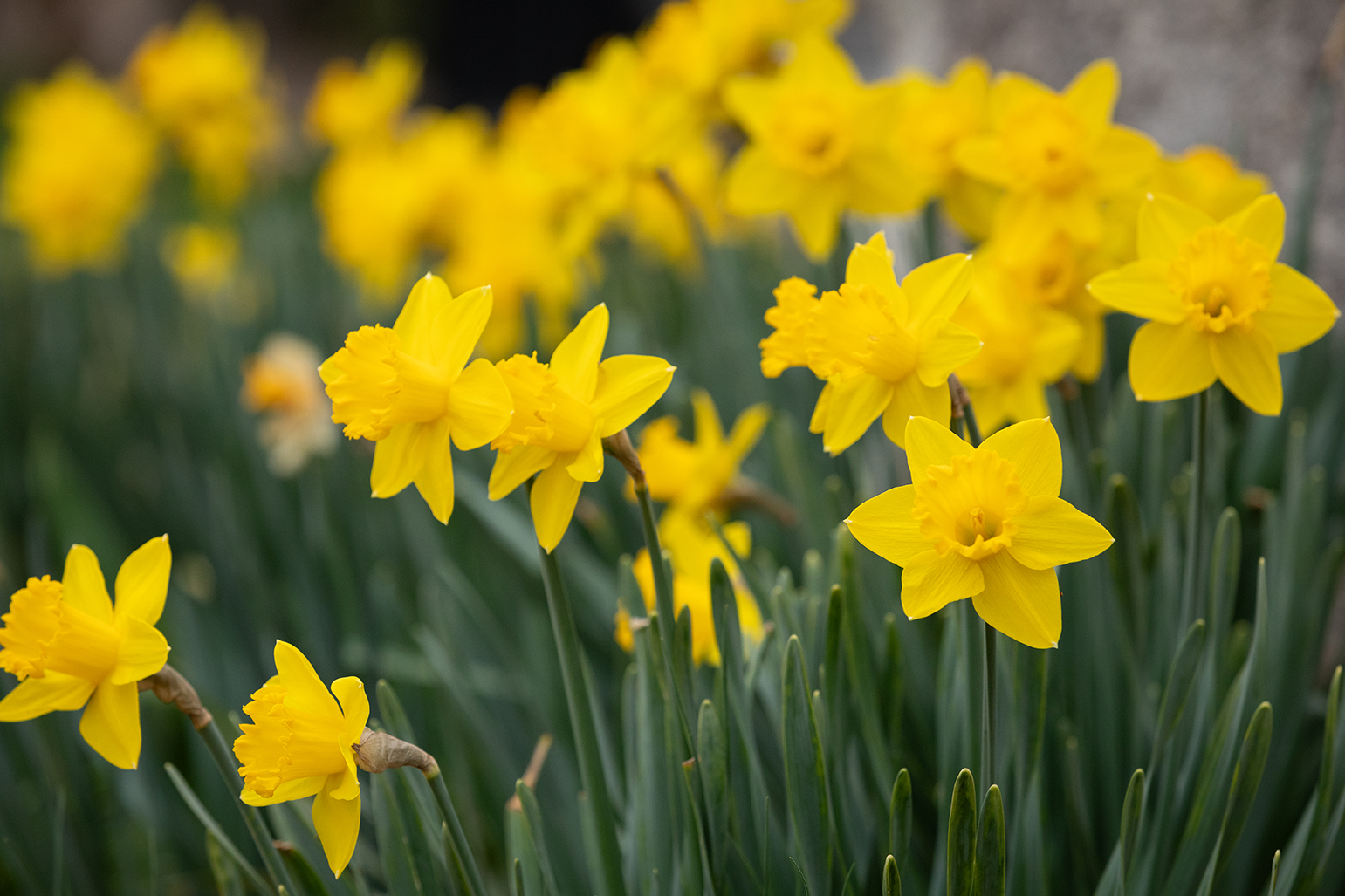Through Your Eyes
Ellen M. Jenkins, M'85, recently moved to Richmond with her husband, James P. “Jim” Jenkins, M'84. In search of a way to keep her hands in the dirt, she got involved with Capital Trees, a nonprofit that maintains public green spaces around Richmond.

Ellen M. Jenkins, M'85. (Photo by Chris Ijams)
This story was published in the spring 2025 issue of 12th & Marshall. You can find the current and past issues online.
One afternoon, Ellen M. Jenkins, M’85, looked out her Church Hill window in Richmond to see the gardens in Libby Hill Park overrun with weeds and unruly lantana branches. Jenkins felt she had to do something about the untended grounds — and thanks to her involvement in several local gardening groups, she knew just who to call.
Four years earlier in 2020, Jenkins had been gradually retiring from Inova Hospital where she worked in internal medicine and rheumatology. She transitioned to remote telehealth shortly before the pandemic and moved to Richmond with her husband, James P. “Jim” Jenkins, M’84, to be closer to their children and grandchildren.

Jenkins' gardening shovel and glove. (Photo by Chris Ijams)
Gardening had long been her outlet — a way to unwind from the demands of her career and family. But as part of the move, Jenkins traded her large backyard in Northern Virginia for a small, landscaped lot in the city.
In search of another way to keep her hands in the dirt, she got involved with Capital Trees, a nonprofit that maintains public green spaces around Richmond. Once a week, Jenkins heads out to the Low Line, a 5.5-acre stretch along the James River and Kanawha Canal, to plant and weed.
“I find digging in the dirt, sitting outside and weeding, so relaxing,” she says. “I’m outside in the sunshine. It’s quiet and I can see my progress.”
Volunteering with Capital Trees led to work with other local groups maintaining plantings around Church Hill and revitalizing library gardens. Eventually, Jenkins landed on the Church Hill Association’s parks and beautification committee.
That’s where she raised her concerns about the overgrowth in Libby Hill Park and began leading the charge to revive the gardens.

Yellow daffodils. (Photo by Chris Ijams)
Jenkins immediately turned to her contacts at Capital Trees. They designed a plan for the gardens, and helped the neighborhood association apply for grant funding to purchase new plantings. The nonprofit also connected her with the Daffodil Society, which found local growers who provided 1,400 bulbs for little to no cost.
From there, Jenkins organized teams of volunteers to remove and prune the overgrown lantana bushes. They also planted evergreens for winter color and perennials for springtime florals.
“We wanted to add a bit more color,” she says, “and have year-round interest in the park.”
In early March, Jenkins started to see the fruits of her labor — and that of the community she helped tend — when the first round of daffodils emerged from their winter slumber ... and bloomed.